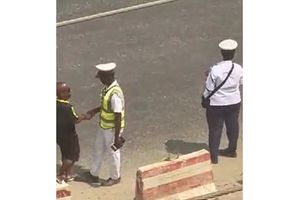Legal challenge opens against Nigeria election result

What you need to know:
- Since Nigeria returned to democracy in 1999 after three decades of military rule, elections have always ended up in court, though no challenge has ever overturned results
Abuja. A panel of five Nigerian judges on Monday sat for a pre-hearing session in a trial involving opposition leaders contesting the February presidential election won by the ruling party.
Since Nigeria returned to democracy in 1999 after three decades of military rule, elections have always ended up in court, though no challenge has ever overturned results.
Petitions contesting the victory of Bola Tinubu were filed in March by several presidential candidates including the main opposition leader Atiku Abubakar who came second and outsider Peter Obi who was third.
The court has 180 days from when the petitions were filed to issue a judgment, which can then be appealed at the supreme court.
No major decision was expected on Monday.
Abubakar, who was on his sixth bid for the presidency, claimed in his petition that he won the February 25 election.
Both he and Obi claimed that results declared by the Independent National Electoral Commission (INEC) were invalid due to "non-compliance" with electoral laws and "corrupt practices".
Abubakar, known in Nigeria as "Atiku", also claimed in his petition of 223 pages that Tinubu failed to score the legal threshold of 25 percent of votes in the Federal Capital Territory.
In his own petition, Obi, who had gained mass support from Nigeria's youth, also claimed to have won the election.
In a 100-page petition, he also claimed that Tinubu was "not qualified to contest" due to his involvement in an alleged drug-related case in the US.
The president-elect has denied any wrongdoing during his time living in the US, and both he and his party have rejected claims from the opposition of electoral fraud, appealing for unity.
The INEC has recognised "glitches" during the February vote but has dismissed claims that the process was not free and fair.
The ongoing court battle is unlikely to disrupt the swearing-in of Tinubu on May 29, who will succeed Muhammadu Buhari after two terms in office.
As the country grapples with widespread insecurity, economic woes and growing poverty, many Nigerians had hoped the presidential ballot would bring about change but many were disappointed by the way the election was conducted.




